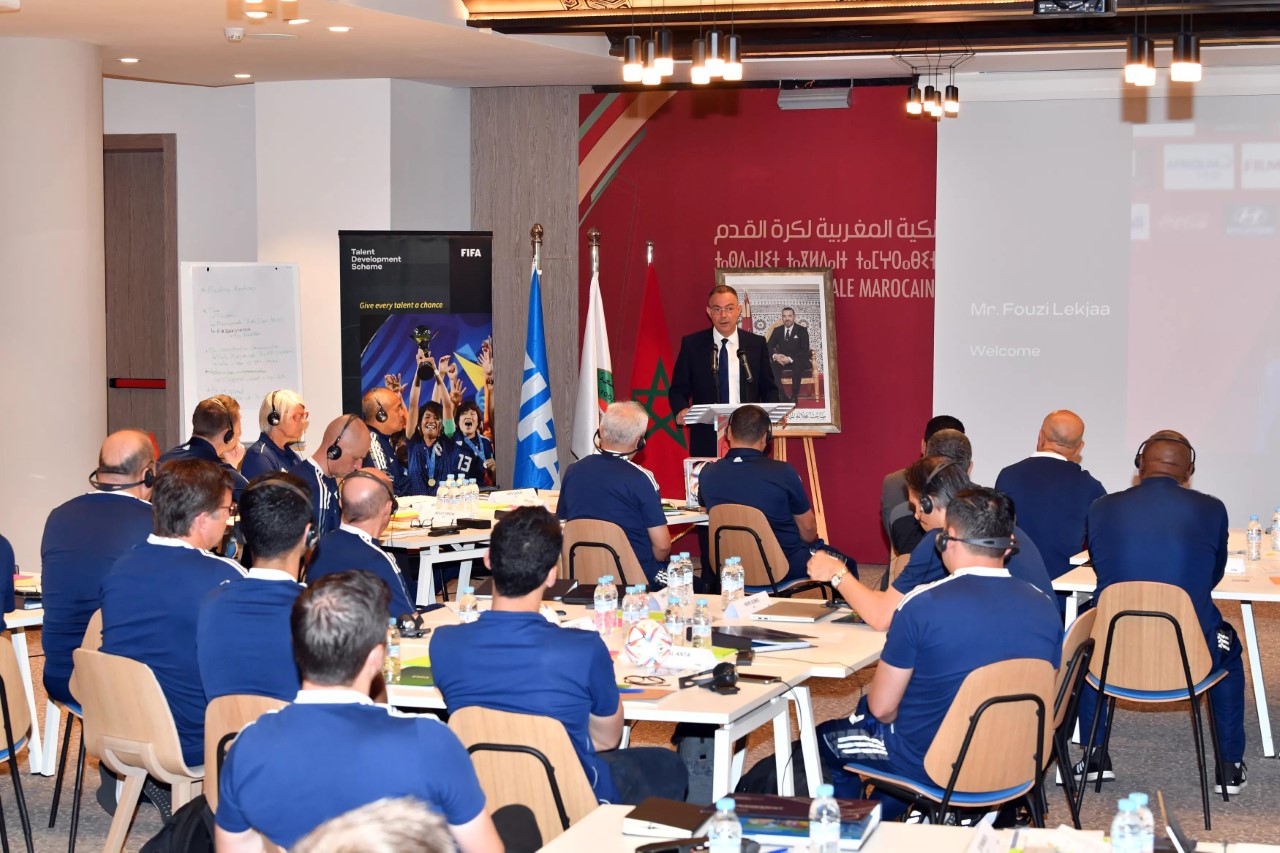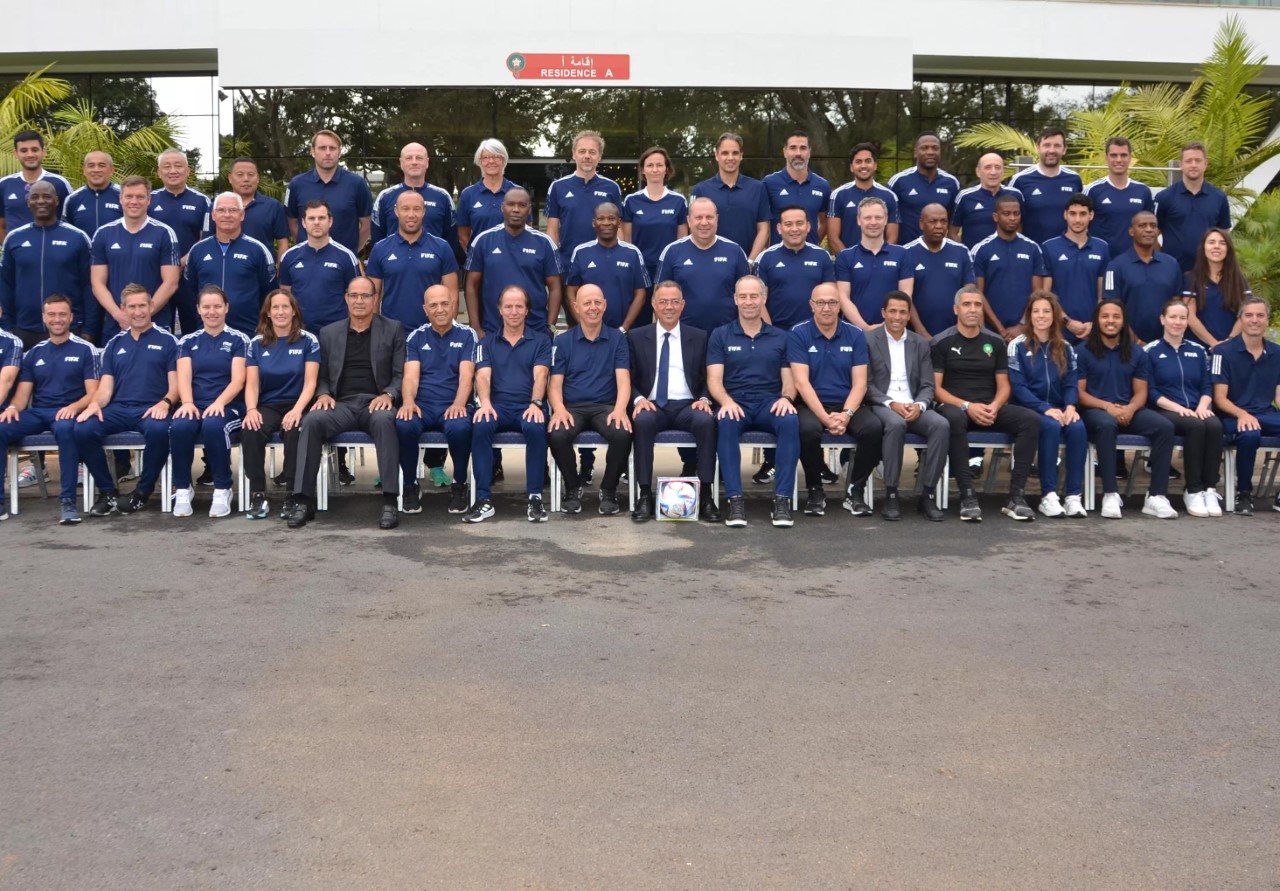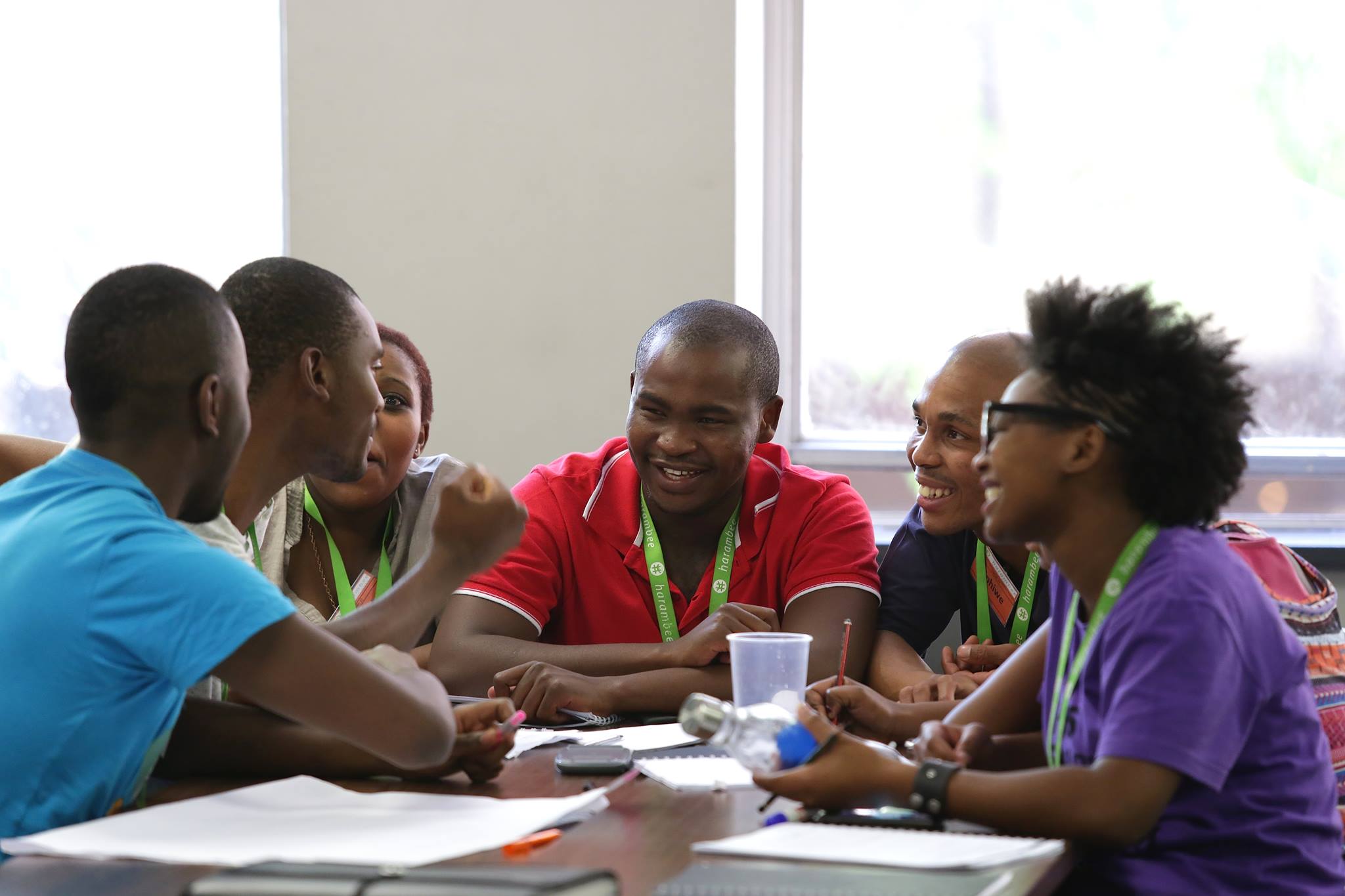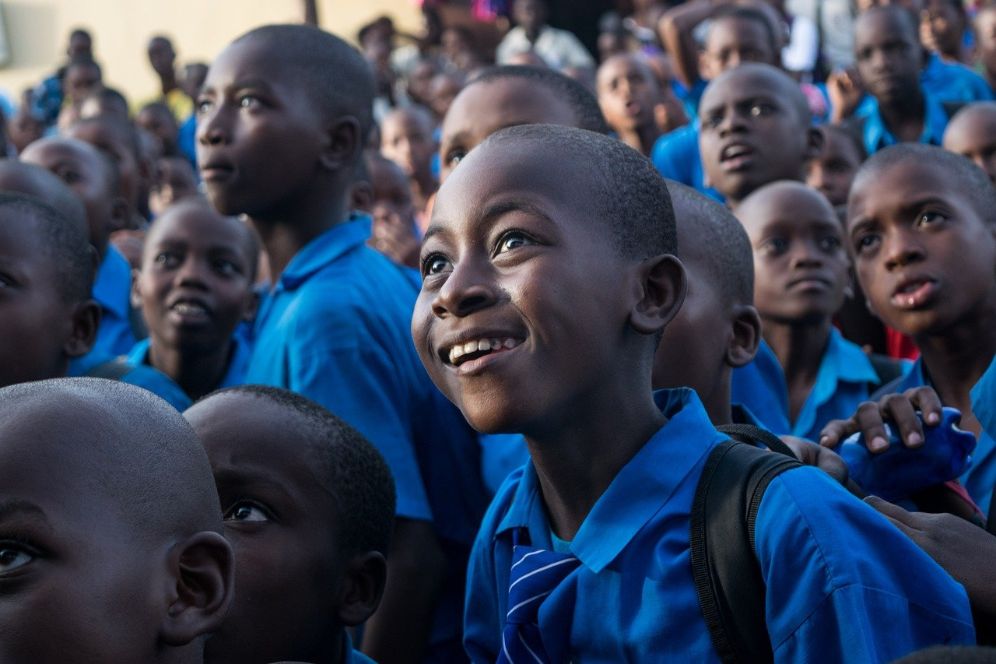Morocco combines its FIFA Talent Development Scheme to schools football programme, paving the way for other countries to follow suit
It’s a scheme in which has consultants taking part along with experts, coaches from around the world, former players, former coaches and former directors of football
By Thandisizwe Mgudlwa


In conjunction with the development of facilities and as part of the
talent detection process, the Moroccan Football Federation (FRMF) is
also in schools, trying to close the net as tight as it can and make
sure that no potentially gifted individuals slip through it.
“We’ve
embarked on a sports studies programme with the Ministry of National
Education to create school structures across the country that can
accommodate boys and girls who play football all the time, offering them
a timetable adapted to every level of schooling,” says
Fouzi Lekjaa, President of FRMF.
And
based on an innovative study on talent development launched two years
ago, the TDS ties in seamlessly with FIFA President Gianni Infantino’s
2020-2023 Vision: Making Football Truly Global. As part of this second
phase and in line with the study’s results, national associations can
focus on specific aspects of their development needs.
“By way of
example, the idea of football development at school has taken root among
CAF member associations,” explained FIFA technical director Steven
Martens. “It’s a great idea but a huge challenge too. It involves all
the associations and all the countries organising a
regular schools
competition that could perhaps lead into international competitions. The
most important thing, though, is local activity and giving young people
the chance to meet up and play regularly.”
The FIFA Talent Development Scheme (TDS) workshop was recently held in Morocco.
Moreover,
the Moroccan Football Association (FRMF) is making great strides in
developing the country’s young talent, pointing the way for others to
follow; FRMF president points to three key elements: facilities, talent
and qualified personnel.
With five FIFA World Cup appearances to
its name and a sixth to come at Qatar 2022, a thriving domestic scene
and a clutch of clubs regarded as continental heavyweights, and a solid
reputation for producing dependable defenders, creative midfielders and
stylish forwards, it is no exaggeration to say that Morocco is a hotbed
of talent.
It was in this football-loving country that FIFA held a
June workshop devoted to the Talent Development Scheme (TDS), which was
launched in February 2020 by Arsene Wenger, FIFA Chief of Global
Development.
More than 50 development specialists and regional
technical advisers attended the Mohammed VI Football Academy to discuss
talent development strategies, share best practice, and prepare the
ground for the rest of FIFA’s member associations to support the scheme.
FRMF
is devoting all its energy to these goals, as its president, Fouzi
Lekjaa, made clear in his opening speech at the seminar: “The
development of football in Morocco is founded on a triangular approach
that should form the basis of the development of any system: facilities,
talent and qualified personnel. Along with my colleagues at the FRMF, I
am convinced that those three fundamentals have to be in place for the
process to develop as it should.”
The FRMF is delivering on its
promises, focusing first of all on facilities both nationally and
locally. A high point in its development plans came with the 2019
opening of the Mohammed VI
Football Academy, which covers 30 hectares
and boasts the latest facilities and equipment – all of it compliant
with FIFA standards. The jewel in the crown of Moroccan football, it is
one of the biggest and highest-achieving sports academies in the world.
In
the meantime, the Moroccan authorities have also been developing local
facilities, as Lekjaa revealed: “We have a team overseeing development
across the country’s 12 regions, starting with talent detection, with
young players attending club academies. That’s why we’ve made such a big
effort to make sure clubs have their own academies. The regional
academies are the same as the national academy, just smaller. The best
players from the regions go to the centre of excellence, which has
coaching and medical staff who work with young players spotted in
grassroots football and take them up to the next level. That’s the way
our development cycle is designed. It starts with talent detection at
grassroots level, with that talent then channeling into the clubs, the
regional academy and on to the national centre of excellence.”
“Morocco
is a young society and our young people have raw talent,” continued the
FRMF president, who also said that that the Moroccan climate is ideal
for playing football. “We are trying to deliver maximum added value in
footballing terms so that we can take that raw talent at the age of ten
and allow them to express it and raise their game. The idea is to
prepare them for life as professional players and for them to kick on
and join clubs.”
The talent is there and the facilities too. All
that is needed are qualified people to ensure that potential is
harnessed to the full. “If the game is going to develop, we need to have
professional staff with the ability to deliver,” added Lekjaa. “That’s
the vital link that we’re working on and investing so much of our energy
in, all with a view to closing the gap and giving everyone the
opportunity to enhance their skills with training delivered by the
National Academy at both amateur and professional level.”
As a
result, Morocco is leading the way with the Talent Development Scheme,
setting an example for others to follow, as FIFA technical director
Steven Martens confirmed. “The Moroccan FA is very important for FIFA
and football in Africa, not just because of its facilities but because
of its programmes, the president’s vision and the quality of its
training.”
Convinced that the country’s investments will pay off,
Martens added: “I know you are anxious for things to happen and are
expecting big results but there is no question that the work Morocco is
doing now will yield results in the long term. Those results might even
come in the medium term. After all, you staged the CAF Women’s Africa
Cup of Nations this year, you have qualified for the 2022 World Cup, and
your youth teams are starting to put some excellent performances
together.”

Impressed
by the welcome they received and the facilities, the workshop’s
participants had an ideal setting in which to explore the themes raised.
”As a high-performance specialist involved in the TDS project, I’d like
to congratulate the Moroccan FA on its amazing facilities. The
association and its president had the vision to build this
infrastructure with the aim of developing talented young players,”
commented former Portugal striker Nuno Gomes, while ex-France defender
Mikael Silvestre hailed the quality of the national academy: “It is
outstanding. It’s lush and green, the pitches are ready and the working
environment is first class.”
“It’s a huge honour that FIFA has
chosen Morocco to organise this workshop,” said FRMF Director of
Training Fathi Djamal. “Morocco was selected because of its many
facilities and major logistical resources. It was selected because of
the excellent reputation it enjoys around the world for organisation.
Our country always led the way in that respect, as a sort of football
laboratory, and we can do so again.”
According to FIFA, the
workshop gave Martens and his team the perfect opportunity to explain
the importance of the TDS and FIFA’s development programmes. “The TDS is
a scheme designed for everyone. It seeks to give every talented player a
chance,” he said. “It’s a scheme in which we have consultants taking
part along with experts, coaches from around the world, former players,
former coaches and former directors of football. We are here to train
the leaders of today and
to prepare them. Some 154 countries have
already signed up for the scheme and it is vital that we help each and
every one of them at their own level.”
“Thanks to the scheme,
we are starting to give a chance to every talented player because we
believe that to be in the interests of every national association,” he
added. “Every association wants their national team to do well, but
there’s a lot more to football development than just a path to the top.
You have to make sure players stay in the game and are excited by it.”
In Morocco, that excitement is spreading across the nation, organisers attest.







